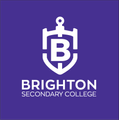PRINCIPAL'S REPORT

Dear parents, carers, students and friends,
You may have seen some reports in the media over recent weeks which examined the changing relationship between schools and some parents/carers.
These articles highlighted the fact that many teachers and principals feel overwhelmed and anxious in their dealings with an increasing number of parents and carers.
A number of years ago I wrote a newsletter piece that traversed the same area, and I asked well known psychologist Dr Michael Carr-Gregg, as well as parenting expert Steve Biddulph, for their comments before I published it.
In processing the recent reportage, I remembered something Steve Biddulph said which resonated with me deeply at the time, and still does.
In short, he said that the relationship some parents/carers had with the schools their children attend had changed because he felt those parents viewed education as a commodity.
Adults are all familiar with this concept and how it frames our expectations around performance and satisfaction. I recently bought a new oven from a large big box white-goods retailer. It developed a fault within weeks of purchase and, therefore, neither meet the product specifications, nor provided me with complete satisfaction. It was not perfect.
You can imagine the steps I then took. I contacted the vendor and, after completing some online research and having lost faith in the brand, I requested a refund. Australian consumer laws were consulted and quoted, and terse emails composed. The commodity failed to meet my expectations, and I wanted a remedy which exclusively met my needs and expectations.
When we approach education with a similar mind-set, we are setting up all concerned for failure for the following reasons:
- Education involves humans, and humans are messy, variable, complex, and emotional beings. They are not ovens.
- The process of education involves an incredibly complex interplay between the traits, attitudes and capacities of individual students, with those of their individual teachers, the organisational set up of the school, their parents/carers, siblings, peers, and other external factors, such as social media. This is a not simple transaction in which payment is make and a good or simple service is delivered.
- Educational progress is inconstant, as is the general physical and emotional development of the children schools are attempting to educate. Children are not an item which works in the same predictable way every day. If things go wrong, a technician from brand X cannot arrive, diagnose, order parts, and make a repair.
- Education is an outcome of a partnership between intensely invested people who all want the children in their care to succeed but who may, quite reasonably, have differing views about the best ways to achieve this. There is no manual which sets out an agreed set of instructions to achieve the best possible sponge cake.
With these things in mind, when things go wrong - and they almost certainly will at some stage with many children – I ask you to consider the situation in the light of these observations.
Education, as is parenting, is part science, part craft, and part alchemy. The incredible complexities of humans mean we can, at times, only ever dimly view and understand the educative processes at play. Therefore, to view education as a commodity simplifies and devalues it, and frames our thinking in ways which are deeply unhelpful to achieving it.
I thank everyone for their hard work and support this term, and wish you all a restful and pleasant holiday.
Yours sincerely,
Richard Minack
Principal
